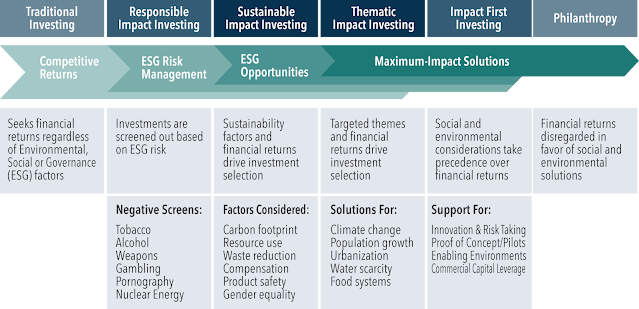Sustainability accounting (also known as social accounting, social and environmental accounting, corporate social reporting, corporate social responsibility reporting, or non-financial reporting) was originated about few decades ago and is considered a subcategory of financial accounting that focuses on the disclosure of non-financial information about a firm's performance to external stakeholders, such as capital holders, creditors, and other authorities. Sustainability accounting represents the activities that have a direct impact on society, environment, and economic performance of an organisation. Sustainability accounting in managerial accounting contrasts with financial accounting in that managerial accounting is used for internal decision making and the creation of new policies that will have an effect on the organisation's performance at economic, ecological, and social (known as the triple bottom line or Triple-P's; People, Planet, Profit) level. Sustainability accounting is often used to generate value creation within an organisation.
Sustainability accounting is a tool used by organisations to become more sustainable. The most known widely used measurements are the Corporate Sustainability Reporting (CSR) and triple bottom line accounting. These recognise the role of financial information and shows how traditional accounting is extended by improving transparency and accountability by reporting on the Triple-P's.
As a result of triple bottom level reporting, and in order to render and guarantee consistency in social and environmental information, the GRI (Global Reporting Initiative) was established with the goal to provide guidelines to organisations reporting on sustainability. In some countries, guidelines were developed to complement the GRI. The GRI states that "reporting on economic, environmental and social performance by all organizations is as routine and comparable as financial reporting"
In order to help finance teams and accountants embed sustainability into their accounting, The Prince of Wales set up The Prince's Accounting for Sustainability Project (A4S) in 2004
ESG Criteria
Acuite
launches India's first ESG rating firm
Mon, 11 January, 2021,
With increasing focus on ESG (environmental,
social and governance) issues, Acuite Ratings on Monday launched a special
rating firm to tap this segment.
The agency claimed that the ESG Risk
Assessments & Insights will be the country's first provider of ESG ratings.
ESG Risk will assess a company's ESG performance and assign a rating using a
risk assessment framework based on a methodology built on investor feedback and
a scalable technology platform, Sankar Chakraborti, CEO of Acuite, said.
The global ESG market has over USD 40 trillion
in AUMs invested using some form of ESG compliance, he said.
In India, 'only 7 per cent of the domestic AUM
is invested in ESG funds at present and our internal estimates show this will
grow to 30 per cent in a decade, 75 per cent of which will be FII funds,' he
added.
ESG Risk seeks to offer ESG ratings to top
1,000 listed companies.


